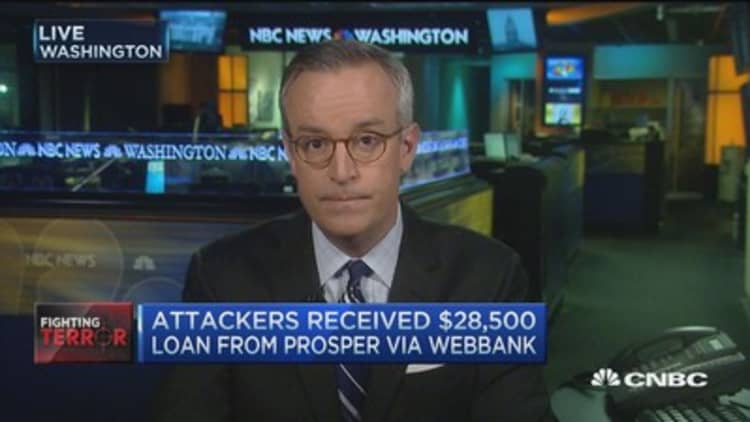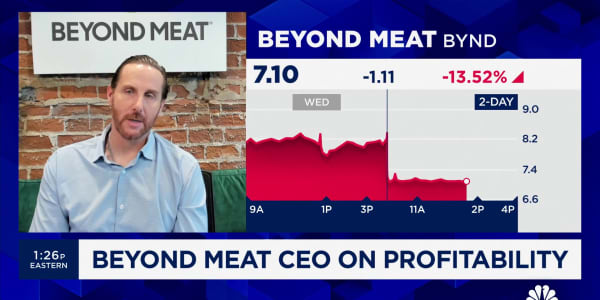A cash crunch is impeding the online lending industry's growth as the cost of borrowing grows, funds become increasingly scarce and ratings agencies maintain a cautious outlook toward the space.
Next, start-ups that have grown into unicorns originating billions of dollars' worth of loans may find themselves doing less lending or, conversely, putting more of their loans onto their own books.
The asset-backed securities market is slowing and issued a meager $40 billion in January — the lowest total since at least 2012, according to Dealogic data — and generated a paltry $10 billion in ABS loans in February. In terms of deal volume, ABS deals in 2016 have also dropped to lows the market has not seen for years.
"We want to tap into the ABS market," said Suk Shah, CFO of lender Avant. "We think the market will be there for our product, it's just a matter of what cost."
Shah said he's expecting an increase in the cost of capital for online lenders. But the start-up, which hit a valuation of $2 billion in late 2015, has other avenues it can use to fund operations. Avant has access to more than $1 billion in existing debt financing and operates a high-net worth lending platform for clients looking to take bigger blocks of peer-to-peer loans. So it's not dependent on ABS deals to issue loans.
But some online lenders are facing skeptical analysts.

Loans originated by online lender Prosper last year were put on watch for a possible downgrade by Moody's earlier this month, citing the likelihood of greater losses than was initially anticipated by the ratings agency.
"The reviews for downgrade of the Class C Notes were prompted by a faster buildup of delinquencies and charge-offs than expected in transactions backed by Prosper-originated loans," Moody's researchers wrote in their Feb. 11 report.
A representative for Prosper said Moody's revision more closely matches projections that had been set by the lending originator's underwriting.
Read More
The online lending industry began as the peer-to-peer lending business, although the peers (who, three or more years ago, often consisted of a group of individuals managing small loan portfolios on a personal basis) were increasingly challenged by hedge funds eager to score single-digit yield on consumer paper widely perceived as low risk.
Credit data company TransUnion projected in a survey released earlier this year that the 60-day-plus secured loan delinquency rate will rise to 3.72 percent by the end of this year. This coincides with an expected increase of about 7 percent in the average secured loan balance per consumer, comparing 2014 numbers to projected numbers for this year, TransUnion research said.
A silver lining is the industry's growth attracting bigger investors over the last several years.
Lending Club CEO Renaud Laplanche said on the company's earnings call this month that pension funds, insurers and other asset managers contributed 21 percent of more than $8 billion that was invested through his company's platform in 2015. And, he says, thanks to online lenders building up a longer track record institutional buyers can trust, he expects that source of capital to grow.
"When they get in, they do so at large numbers," he said.
Read MoreIn a pinch, more consumers turn to personal loans
Both Lending Club and On Deck Capital, an online lender focusing on small businesses, have seen stocks struggle after their respective IPOs; as of midday trading on Friday the shares of each were down more than 18 percent on the year. On Deck Capital entered into a partnership with JPMorgan Chase late last year to develop an origination platform with the help of the bank.
Virtually all the companies in the online lending arena emerged in the wake of the financial crisis, and haven't yet had to sail with proverbial economic headwinds in their faces.
"We built our business thinking about what would happen in a recession," Shah said.






